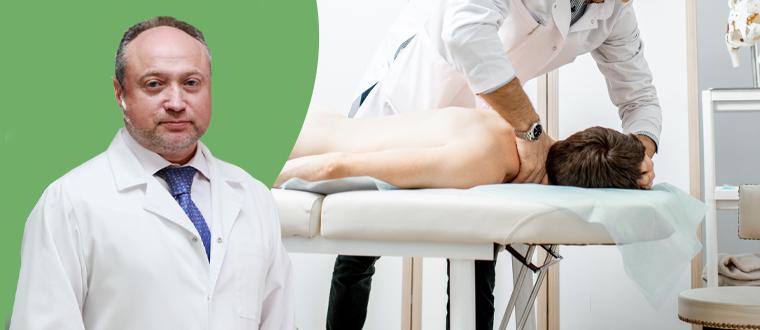Oriental bodywork therapy
In accordance with ancient Chinese teachings concerning the flow of vital energy, qi, within the human body through meridians, there exist several healing practices. Among these is the Oriental Body Therapy, a specialized form of massage that targets specific impact zones and employs methods aimed at influencing the active points and meridians of the body.
This particular massage technique offers both healing and tonic effects, making it a valuable and sought-after service we take pride in offering to our esteemed clients. Dr. Vadim Dekhtyar, DACM is an experienced specialist who has undergone rigorous training and provides Asian bodywork therapy in Chicago, IL.
What is bodywork in Chinese medicine?
There are 17 known forms of Asian body therapy, all interconnected with the doctrine of qi energy and meridians. Acupressure is one such bodywork therapy that aims to balance qi by applying manual pressure to specific acupuncture points in accordance with the meridian model of the body.
TuiNa (pushing hands) is another oriental body therapy rooted in traditional Chinese medicine. Through the manual manipulation of the body's meridian channel system, it facilitates the restoration of harmonious qi flow, thereby enhancing the body's innate healing capacity. For instance, tuina has gained popularity as a health practice among individuals with musculoskeletal conditions such as osteoarthritis.
The techniques employed in this Asian body therapy encompass muscle and connective tissue massage, complemented by acupressure methods to facilitate the smooth flow of qi. After a tuina session, one can expect to experience a sense of relaxation and increased energy as stagnation dissipates and fresh energy nurtures the body. Tuina utilizes various manual stroking and rotation techniques on acupuncture points to open up congested meridian channels.
Who is a good candidate for Asian Bodywork Therapy?
Similar to other body therapies, TuiNa is effective in relieving pain, such as headaches, migraines, and arthritis, as well as promoting healing and alleviating soft tissue injuries—among its most common applications.
However, the unique qualities of this oriental bodywork therapy extend to assisting with digestive disorders, including indigestion, stomach ulcers, duodenal ulcers, and gastric prolapse. Moreover, TuiNa can prove beneficial in reducing scarring for patients who have recently undergone surgery, or in increasing the elasticity of skin affected by aging or disease.
Tuina massage effectively addresses disorders in the musculoskeletal system. However, it is crucial for a Tuina practitioner to conduct a detailed diagnosis before initiating treatment. Therapy commences only after determining the root cause of the injury, its nature, the affected areas, the duration of symptoms, the presence of edema, and the condition of the limbs and the patient's joints.
Benefits and contraindications
Every treatment method has its advantages and disadvantages, and TuiNa is no exception, despite its ability to address both internal and external diseases.
These techniques are well-regarded for their efficacy in treating acute and chronic musculoskeletal conditions, as well as various non-musculoskeletal conditions. Scientists from many countries have concluded that the use of Tuina techniques can serve as a safe and cost-effective approach to reduce back and neck pain.
Tuina practitioners focus directly on the specific problem areas of the patient's body, setting it apart from other Traditional Chinese Medicine (TCM) practices such as acupuncture. The benefits of tuina include:
- Treating certain types of tendons- and bone-related injuries or pains.
- Improving motor and sensory dysfunction, as well as reducing pain after a nerve injury.
- Treating of headaches, migraines and arthritis.
- Improving blood circulation.
- Relieving pain.
- Having a therapeutic effect on mood (physical and mental relaxation).
- Strengthening the immune system.
- Enhancing the flow of breast milk (for lactating women).
TuiNa massage, in the absence of contraindications, improves body tone, influences acupuncture points, and facilitates a speedy recovery, in addition to preventing issues related to the musculoskeletal system.
Contraindications to TuiNa and other bodywork therapies include:
- acute injury or traumatic injury with an open wound;
- infectious diseases that can be passed through skin-skin contact;
- pregnancy;
- certain chronic diseases;
- enlarged nodules;
- a high risk of heart attack inflammation in your spinal cord.
It's essential to be mindful of your specific health conditions when considering TuiNa. If you have any of these disorders, it's best to prioritize your well-being and refrain from undergoing TuiNa therapy for now.
Asian Bodywork Therapist in Life Balance Clinic
At our clinic, we conduct a meticulous analysis of any health deviations, aiming to comprehend the underlying causes of impaired body functions. Following this, we offer our clients a range of treatment methods, including bodywork - one of the most ancient and effective means of influencing the body. You can expect the assistance of a skilled and attentive Asian bodywork therapist at our clinic, possessing all the requisite skills and the appropriate certification in Asian bodywork therapy.
TuiNa massage elevates your body's tone, progressively alleviates troubling issues, and enhances overall comfort, contributing to a more fulfilling life.
